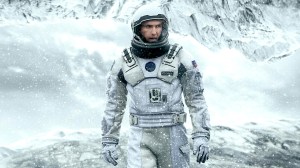Science fiction has been around in cinema since the start; one of the first narrative films was Méliès’s A Trip to the Moon in 1902. Science fiction films combined the humanist sensibility of most dramas with the incredible visual spectacles cinema can achieve. A lot of science fiction literature focused more on potential technological advancements, while science fiction films (and eventually television), began to question what would happen to human nature as humanity continued to improve and grow. Science fiction films would, however, frequently show the darker side of humanity, too; with any advancement, directors and writers insisted, could come regression, too.
Videos by ComicBook.com
Sci-fi as a genre can also get convoluted at times, leading to endings that confuse audiences instead of giving them emotional catharsis. The best sci-fi endings, and the ones that feel perfect, reinforce the themes of their films and give the characters emotional release. There are a lot of different ways to end a sci-fi movie; here are ten of the movies with perfect endings. Spoiler warning: as this article discusses endings, there will obviously be discussion of spoilers throughout.
10. 2001: A Space Odyssey
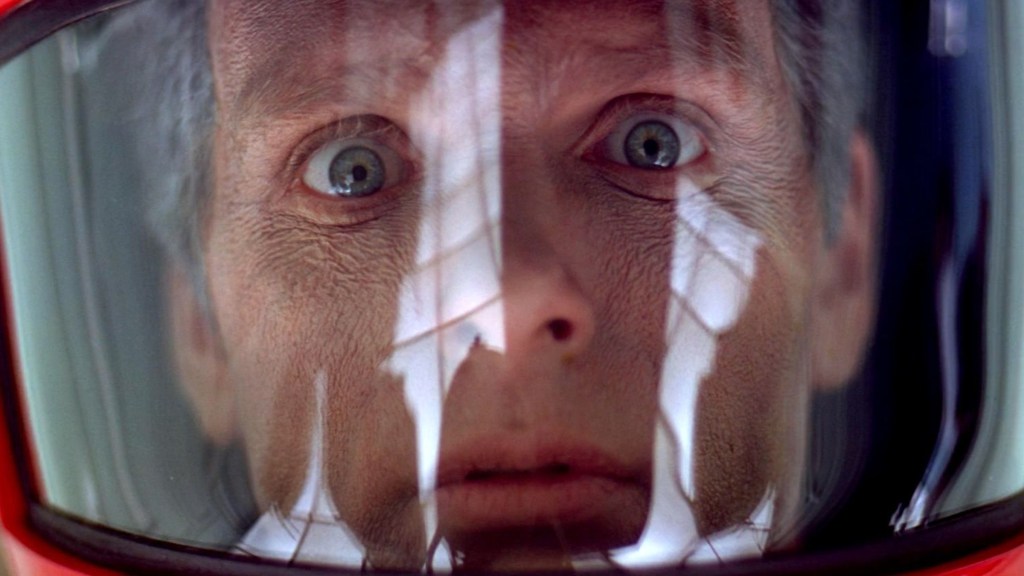
The ending of 2001: A Space Odyssey is bizarre and troubling, after over 2 hours of slow, careful action. Dr. David Bowman follows through on investigating the final, mysterious monolith, when he is captured by mysterious forces and turned into a fetus and ultimately, sent back in the direction of Earth. Kubrick would explain the ending in an interview released after his death, revealing it was some kind of alien force, but their intentions were more meta in nature. Kubrick was concerned with how mythologies are crafted and made, which makes the ending tie together perfectly with the prehistoric beginning.
9. The Invisible Man (1933)
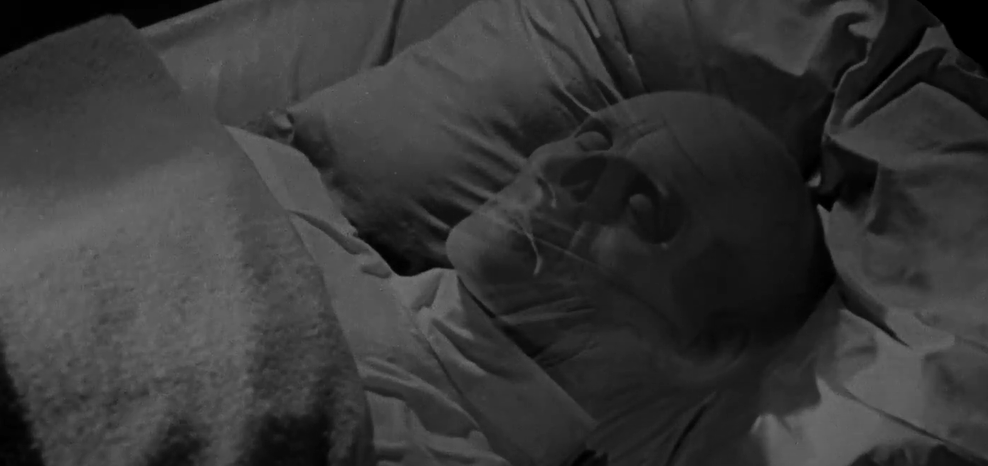
The first Invisible Man (1933) ends by killing off its mischievous protagonist. Dr. Jack Griffin (Claude Rains) only begins to be visible again as the drug he took wears off; but it’s too late: the gunshot wounds he incurred are fatal. In many ways, this is a technically perfect ending for the time the film was made in; Griffin appears one layer at a time until audiences see the face of Claude Rains for the first time (it was his screen debut). For 1933, it’s a very cool special effect, and while it aligns with the moral sensibilities of the time — Griffin punished for his actions — it’s still sympathetic to a scientist who was trying to make something of himself, no matter the cost.
8. Solaris (1972)
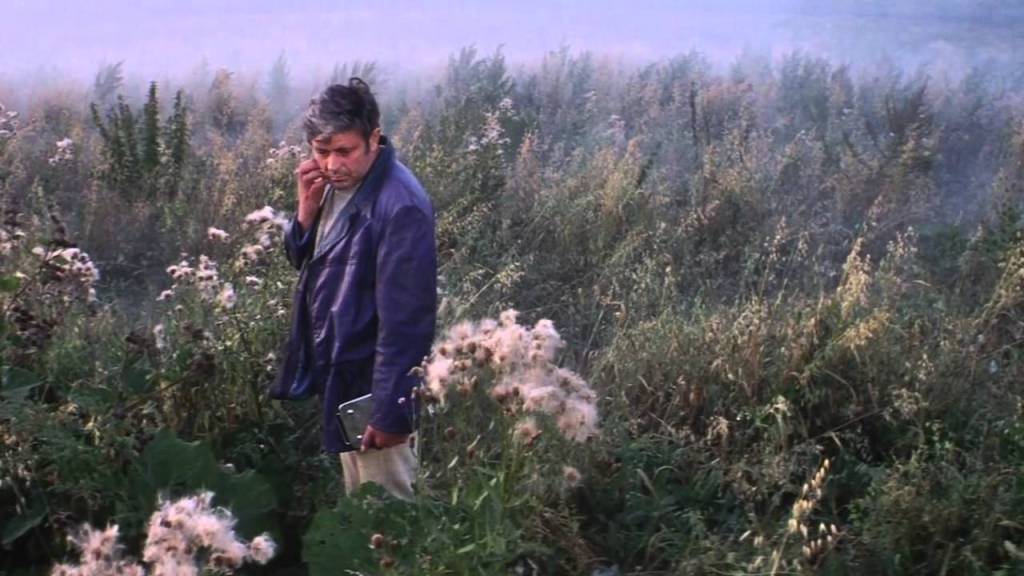
Soviet filmmaker Andrei Tarkovsky crafted his classic film Solaris in response to the Western science fiction films he found emotionally lacking, such as 2001: A Space Odyssey. He was more interested in the emotional lives of his characters, whether they’re futuristic or not. Kelvin, a psychologist, is sent to a space station to determine whether its inhabitants are going mad; he’s forced to reckon with the ghosts of his past, and his own very uncertain future, at the same time. There are beings such as aliens in Solaris, but they’re less interested in mythmaking, and much more interested in what makes one human. Tarkovsky is also concerned with the isolation aspect of space travel. The ending shows Kelvin reaching emotional satisfaction, even if physically, his world has totally changed.
7. Alien (1979)
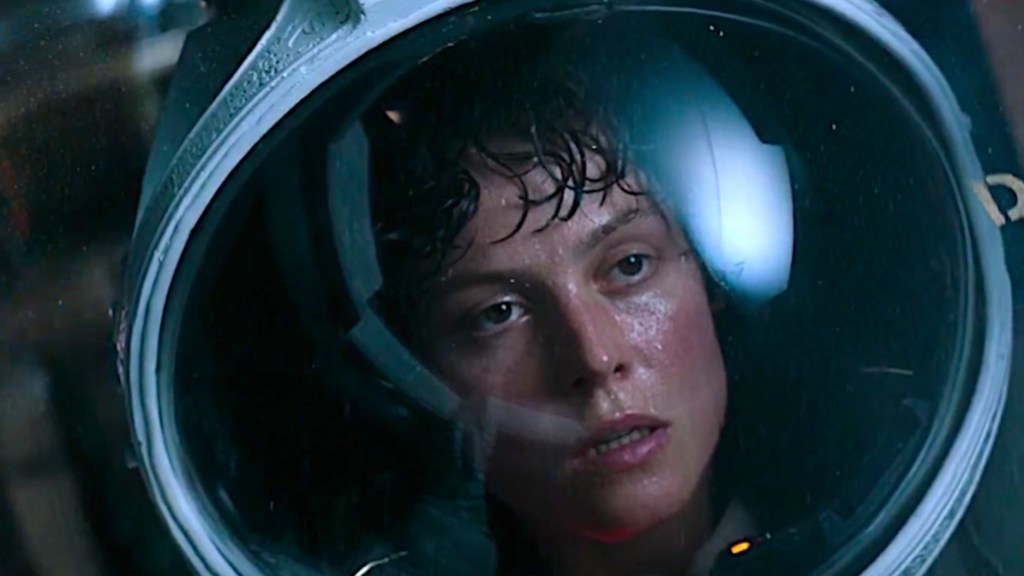
Alien‘s ending isn’t exactly triumphant, but still, Ellen Ripley manages to survive the alien that ravaged her crew, alongside her cat, Jones. She looks out into space for what might be the final time, before going into stasis on a tiny shuttlecraft. It’s not a definitive ending — Ripley isn’t even sure she will get to go back home — but after nearly an hour and a half of peak cinematic tension, it allows us to breathe. The ending doesn’t negate the tension of the rest of the film, and it’s low enough impact that it still allows the film to be endlessly rewatchable. It’s an ending that allows for a killer franchise to be unleashed, too.
6. Woman in the Moon (1929)
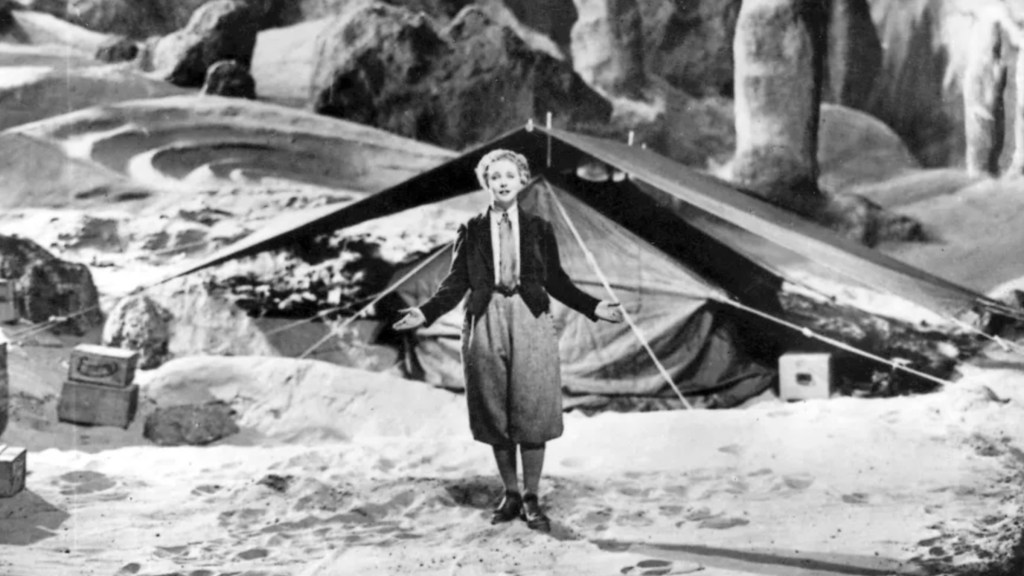
Fritz Lang’s other silent science fiction masterpiece sends man (and woman) to the Moon in a future-forward consideration of a what would become a common voyage less than half a century later. Woman in the Moon trades in what would become frequent tropes of space travel epics, but in many ways, it originated many of those same tropes. Professional jealousy and romantic triangles dominate among the crew of the Friede (German for “peace”). The brilliant scientist and protagonist Helius sacrifices himself and stays behind when there’s not enough oxygen for the entire crew to return to Earth; he thinks he’s alone, until he realizes Friede, the mission’s lone woman, has stayed behind with him. He’s been in love with her the entire time, but he doesn’t realize it’s mutual until the very end. It’s a bittersweet ending, but it’s also a perfect one, setting the groundwork for more thoughtful, humanistic endings in science fiction films for years to come.
5. Star Wars (1977)
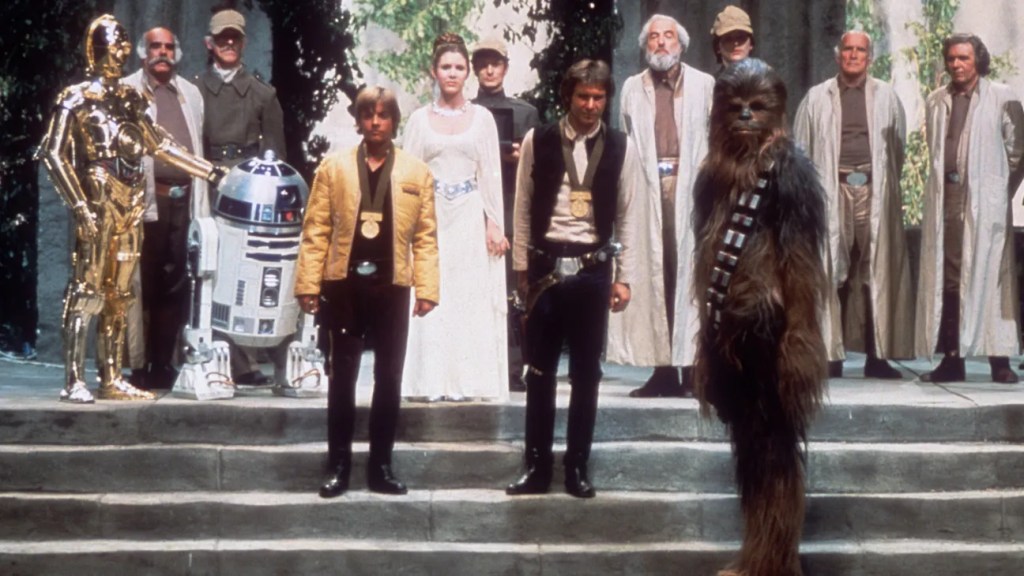
The ending of Star Wars, as it was in 1977, is utterly triumphant. Yes, a sequel was likely, and no, the fight against the Empire wasn’t over (and is it ever?), but the image of our two entirely unlikely heroes being lauded by the Rebel Alliance with medals, applause, and a roar from Chewbacca was truly spirit-lifting. With the context we have now, thanks to Rogue One and Andor, it’s a more bittersweet ending, but it’s also what Cassian Andor and Jyn Erso spied and fought for. From Han Solo flying in with the Falcon to help Luke at the last minute of the trench run, to Luke actually making the shot that destroys the Death Star, to our heroes joyfully assembling in what appears to be an ancient temple, it was a feel-good ending, and even an entire franchise later, it still is.
4. On the Beach (1959)
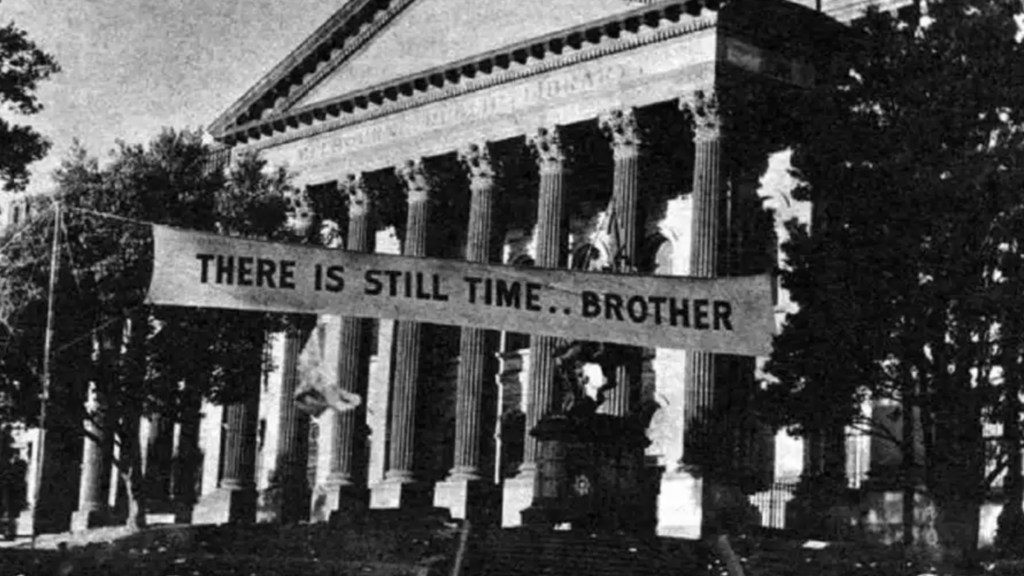
When On the Beach debuted in 1959, audiences mostly didn’t know what to do with it. Despite a high-powered cast, including Ava Gardner and Gregory Peck, the story of the last of humanity struggling to survive in Australia after nuclear armageddon didn’t bring people to the cinema in droves. The ending is appropriately somber, as the main cast discovers that not even Australia will be safe in the end; nuclear fallout is blowing towards them. It’s implied by the end that everyone is going to take their own lives instead of living through the horror of nuclear winter. The final shots are of a desolate Melbourne, silent and still.
3. Star Trek II: The Wrath of Khan (1982)
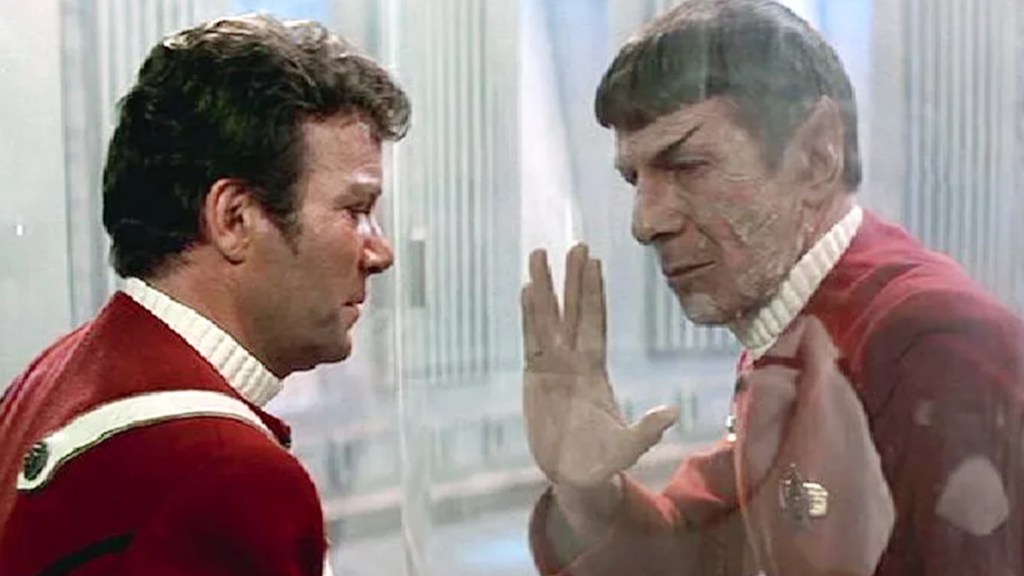
The ending of Star Trek II: The Wrath of Khan is quietly contemplative and strangely grandiose. Spock is dead, allowing us to see a Starfleet funeral for the first time, complete with the space version of a “burial at sea”, being placed into an empty torpedo shell and being launched out into the great beyond. Despite losing his best friend and first officer, Kirk is strangely calm, finally settling, perhaps, into the mortal coil we’re all trapped in (after spending the entire film fretting about aging). The final moments of the film are narrated by Nimoy as Spock, giving what was once Kirk’s declaration at the start of most Original Series episodes: “Space: the final frontier…” Yes, this final moment directly insists upon the next movie, The Search for Spock, but it takes the Star Trek mythology to a whole other level at the same time. Spock’s sacrifice wasn’t in vain, and in Star Trek, few things are ever final.
2. The Iron Giant (1999)
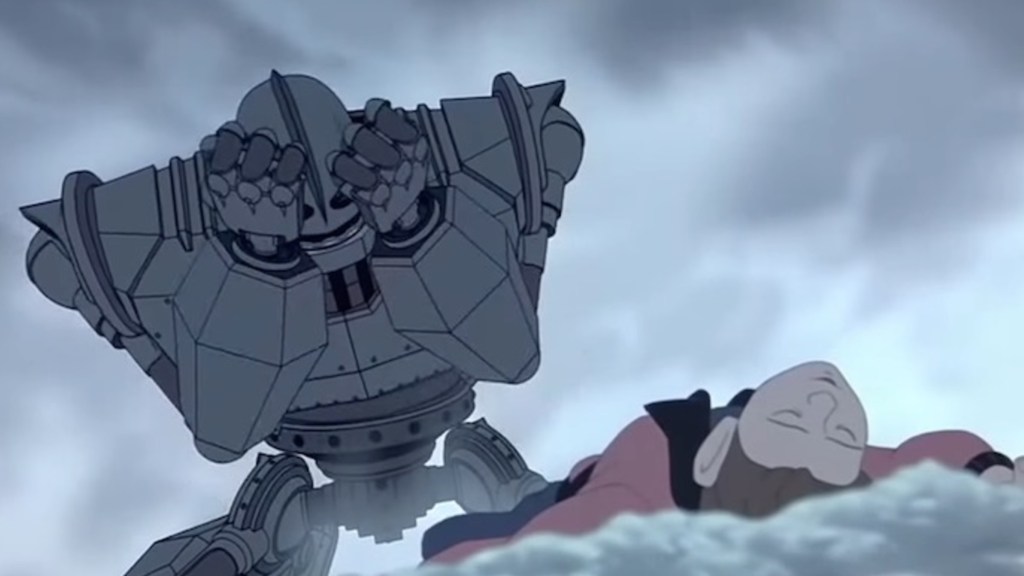
The ending of The Iron Giant is a perfect tearjerker. The titular Iron Giant chooses to turn away from his programming as a weapon of war to become a shield for humanity. His last words reflect what young Hogarth has been trying to impress upon him this entire time: he peacefully declares himself “Superman” as he intercepts a nuclear missile impulsively ordered. It seems like he’s been destroyed, and nearly everyone mourns, but the ending reveals at least part of his survival, as parts of his build begin reactivating and calling out to one another, leading to him presumably being reassembled.
1. Interstellar (2014)
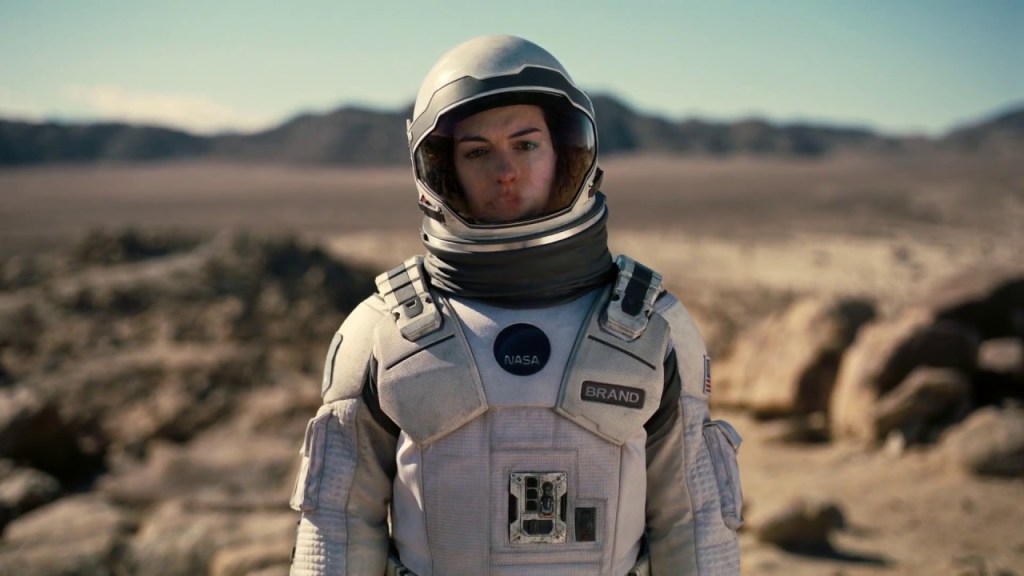
Christopher Nolan’s space epic might be temporally confusing, but it’s emotionally resonant. Coop (Matthew McConaughey) manages to communicate to his loyal daughter Murph (Jessica Chastain, Mackenzie Foy, and eventually Ellen Burstyn) back on Earth, giving her and the rest of humanity valuable data. He gets to reunite with a now aged and dying Murph at the very end, where she reiterates a core point of the film: keep moving forward, sending him after Anne Hathaway’s stranded astronaut Dr. Brand. For a film about the eventual environmental desolation and abandonment of Earth, Interstellar‘s ending insists that hope must be found in our shared humanity; it doesn’t matter what point in space or time, precisely, we call home.
What is your favorite ending for a science fiction movie? Let us know in the comments below!

